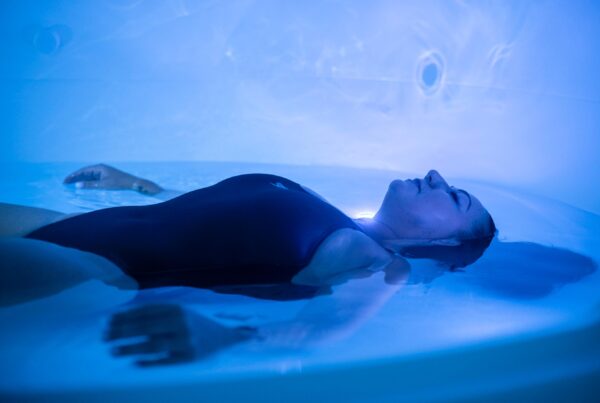At the time of writing, it’s almost a full year since the UK’s first coronavirus lockdown, we’re in lockdown #3, and there are widespread reports of increased burnout rates, chronic stress, and fears of a mental health epidemic to follow with 4 in 10 adults reporting anxiety or a depressive disorder up from 11% in 2019.
Whilst it’s positive that the majority of people have shown remarkable resiliency, the growth in burnout symptoms and exhaustion is startling.
As a provider of float therapy, we’ve long extolled the virtues of floatation in reducing stress, anxiety, and the physiological markers of burnout. Right now it feels like an important topic to delve into, so we dig deeper into how regular float sessions can play an important role in almost anybody’s self-care routine, providing relaxation unlike anything else to aid burnout prevention.
What Is Burnout?
For most people, stress is normal, though should only occur infrequently within an ideal environment. It can have positive effects, aid focus or productivity, though becomes problematic if it develops into a chronic issue.
According to the NHS, burnout can often develop if a person has been under prolonged stress, leading to a state of mental, physical, and emotional exhaustion. It can feel like a sense of powerlessness, combined with a loss or hope or ability to move forward.
There’s little doubt that living in times of sustained social isolation, fear of illness, and uncertainty, have been contributory factors to many of us experiencing ongoing increased stress levels.
There’s good news, however – stress and burnout can be managed, improved, and we think floatation therapy can be a powerful tool in bringing people back from the brink of exhaustion.
As well as exhaustion, burnout can lead to depression, make it difficult to sleep, or work.
Though without testing it’s hard to be aware of this, elevated cortisol levels are usually found, and if prolonged, exposure to this stress hormone can even lead to physical feelings in your body such as muscle tension or chronic pain.
Dealing With Burnout
Confronting burnout is a large part of the challenge. It can be hard to recognise it, and harder to take action to prevent burnout from worsening or impacting loved ones.
Thankfully the UK vaccination programme seems to be paving the way for an easing of government-imposed restrictions, so social interactions and more self care practices can resume.
However, if you’ve experienced a symptom as above, maybe you should accept that you could be experiencing burnout and take steps to improve your stress.
For many, getting organised can be a great starting point for reducing the stress that leads to burning out. In this, though it might feel difficult to prioritise, it’s important to also make space for relaxation – prioritising your self-care can greatly reduce risks.
Can Floating Prevent Burnout?
As stress is essentially a response to your environment, in its simplest terms, sensory deprivation or restricted environmental stimulation therapy that floating provides, gives your body and mind freedom to recover from the stressors of the world in a way unlike any other.
Floating effortlessly in 550KG of the highest quality Epsom salt removes external pressures. As the body and mind are allowed to stop reacting, put simply it can focus energy on deep healing processes that being in a state of stress holds back.
It’s usually quoted that cortisol levels reduce by ~20% in one session, but also adrenaline reduces, dopamine increases, and beta-endorphin secretion increases. This rebalancing can have amazing results, clearing brain-fog, improving sleep, focus, and even reduce chronic pain.
In a recent study at the Laureate Institute for Brain Research, ‘the float experience induced a reduction in self-reported state anxiety that was evident across all participants… Significant reductions were observed in state anxiety, stress, muscle tension, pain, depression, and negative affect’.
Every single patient who undertook floatation therapy saw significant reductions in key markers of burnout. It seems likely (and we strongly believe), therefore, that floating can be a powerful tool in reducing feelings of burnout.
About Float Hub
A combination of burnout and sleep issues led to our founder, Tom, trying out floating 5 years ago. After one session, he couldn’t believe that more people weren’t aware of it, feeling instantly refreshed, and reinvigorated at work and in life.
We’ve tried to create the ultimate environment for float therapy, with the world’s best pods, calming aesthetic, with a dollop of affordable luxury to make the experience feel special. It led to us getting #1 spot on TripAdvisor for spas in London within 3 months and being described as the ‘piece de resistance for the entire scene’ of floating.
We’re also a purpose-driven company; we have offered substantial discounts & free floats to our local NHS workers since pre-Covid times, have been careful to minimise environmental impact, and have a number of planned community initiatives as we grow.
Floating with us is one of the safest activities we can imagine, with our rooms private, disinfected with effective yet chemical-free products, and our pods the most hygienic available. Find out more on our Covid safety here.
Do please share this with a loved one who could use some help dealing with burnout right now, or book yourself in for a session to experience what float therapy should be like.





